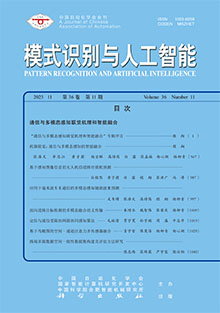A robust method for detecting image features with application to face recognition and motion correspondence
Q4 Computer Science
引用次数: 17
Abstract
The authors present an approach to feature detection, which is a fundamental issue in many intermediate-level vision problems such as stereo, motion correspondence, image registration, etc. The approach is based on a scale-interaction model of the end-inhibition property exhibited by certain cells in the visual- cortex of mammals. These feature detector cells are responsive to short lines, line endings, corners and other such sharp changes in curvature. In addition, this method also provides a compact representation of feature information which is useful in shape recognition problems. Application to face recognition and motion correspondence are illustrated.<一种鲁棒的图像特征检测方法,并应用于人脸识别和运动对应
作者提出了一种特征检测方法,该方法是许多中级视觉问题(如立体、运动对应、图像配准等)的基础问题。该方法基于哺乳动物视觉皮层中某些细胞所表现出的终抑制特性的尺度相互作用模型。这些特征检测单元对短线条、线条末端、角落和其他曲率的急剧变化做出反应。此外,该方法还提供了一种紧凑的特征信息表示,这对形状识别问题很有用。说明了在人脸识别和运动对应中的应用。
本文章由计算机程序翻译,如有差异,请以英文原文为准。
求助全文
约1分钟内获得全文
求助全文

 求助内容:
求助内容: 应助结果提醒方式:
应助结果提醒方式:


